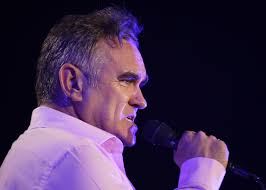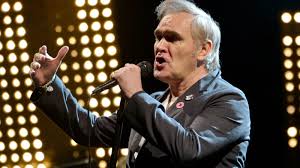Few artists in modern music inspire the level of devotion—or controversy—that Morrissey does. The former frontman of The Smiths, now a 66-year-old solo performer with a cult-like following, was forced to cancel two United States shows in mid-September after what authorities described as a “credible threat” on his life. The cancellations have rattled fans, raised questions about security in an increasingly volatile cultural climate, and added yet another chapter to Morrissey’s long and complicated relationship with the public.
The seriousness of the situation became clear when the MGM Music Hall at Fenway in Boston confirmed the cancellation of his September 20 performance. A day earlier, the Foxwoods Resort Casino in Mashantucket, Connecticut, also announced that Morrissey’s scheduled show would not go forward. Both venues emphasized that the decision was made out of caution and for the safety of the artist, his band, and concertgoers.
On Instagram, MGM Music Hall stated: “Officials became aware of a credible threat on Morrissey’s life in the past few days and opted to cancel…out of an abundance of caution.” The wording underscored the seriousness of the threat, even if few details were made public.
According to reporting from the Ottawa Citizen, the threat allegedly came from a 26-year-old Ottawa man who posted menacing remarks against the singer on Bluesky, the decentralized social media platform that has gained traction among journalists and musicians. The post, made on September 4, is now part of an ongoing investigation.
While the musician’s official Facebook page sought to reassure fans by promising automatic ticket refunds and thanking them for their understanding, the cancellations inevitably sparked unease. For longtime followers of Morrissey—many of whom had traveled significant distances to see him live—this was another disappointment in a career increasingly marked by cancellations, controversies, and unpredictability.
The gravity of the threat against Morrissey becomes clearer when placed within the broader context of recent high-profile political assassinations in the United States. Just days earlier, conservative activist Charlie Kirk was gunned down during a speaking engagement at Utah Valley University, a killing that shocked both supporters and critics alike.
This followed the June 14 shootings of Democratic Minnesota state lawmaker Melissa Hortman and her husband Mark, and the December 2024 assassination of UnitedHealthcare CEO Brian Thompson. These killings, cutting across ideological and professional lines, have contributed to a growing sense of insecurity in American public life.
Against that backdrop, the cancellation of Morrissey’s shows feels less like an isolated incident and more like part of a broader cultural crisis in which public figures—from politicians to business leaders to artists—face unprecedented dangers.

Morrissey himself has never shied away from provocation. His outspoken views on politics, identity, and the music industry have often landed him in headlines. But whether one loves or loathes his positions, few could have predicted that his life would be credibly threatened while touring in the United States.
For many fans, Morrissey’s live shows are more than concerts—they are near-religious gatherings. The cancellations in Connecticut and Boston left ticket holders disappointed, particularly since many had waited months or even years for a chance to see him.
Some fans took to social media to express solidarity, emphasizing that the singer’s safety should come before any performance. “I’ve seen Morrissey in six different cities, but I’d rather wait another year than risk his life over one show,” one fan wrote on X (formerly Twitter). Others, however, voiced frustration, pointing to a long history of cancellations that have plagued the singer’s career.
Indeed, Morrissey’s reputation for unpredictability is legendary. Over the years, he has walked off stage due to cold venues, ill health, technical malfunctions, and disputes with promoters. Earlier this year, he abruptly canceled a concert in Stockholm, lamenting that his European tour lacked sufficient “music industry support.” On his website Morrissey Central, he expressed heartbreak over missing Stockholm, Reykjavik, Trondheim, and other cities, blaming “imaginary record labels” for failing to provide financial backing.
This blend of artistry, fragility, and defiance has become part of the Morrissey mystique. For some, it makes him all the more compelling; for others, it reinforces the perception that he is unreliable.
Born Steven Patrick Morrissey in 1959 in Manchester, England, Morrissey rose to fame in the 1980s as the voice of The Smiths. Alongside guitarist Johnny Marr, he crafted songs that were both melancholic and witty, filled with longing and irony. Albums like The Queen Is Dead and Meat Is Murder turned the band into icons of alternative rock, influencing generations of artists.
After The Smiths disbanded in 1987, Morrissey launched a solo career that has spanned nearly four decades. Hits like Suedehead and Everyday Is Like Sunday cemented his status as a unique voice in British music. His cult following, particularly among outsiders and misfits, has endured despite—or perhaps because of—his penchant for controversy.
In recent years, however, Morrissey has faced criticism for his outspoken political views. His comments on immigration, his support for controversial figures, and his battles with media outlets have alienated some fans while galvanizing others. To this day, his concerts remain spaces where adoration and protest often coexist.
The cancellations in Connecticut and Boston raise difficult questions about the future of Morrissey’s current North American tour. He had kicked off the run in Montreal and New York City earlier this month, with upcoming dates scheduled in Philadelphia (Sept. 23), Pittsburgh (Sept. 25), and Chicago (Sept. 27). As of September 20, the status of these shows remained uncertain.
Promoters face a delicate balancing act. On one hand, postponing or canceling more concerts risks disappointing fans and undermining the tour’s financial viability. On the other, ensuring safety in an environment where public figures have increasingly become targets of violence is paramount.
The entertainment industry as a whole has grappled with similar concerns. Security at concerts has tightened considerably since tragedies like the 2017 Las Vegas shooting at the Route 91 Harvest festival, which left 60 dead and hundreds injured. For artists like Morrissey, who thrive on intimacy and closeness with fans—often leaning over stage barriers to grasp hands and exchange roses—these new realities can feel suffocating.
The threat against Morrissey also highlights a troubling feature of modern celebrity life: the rise of online threats and harassment. Social media platforms, once celebrated as tools for direct fan-artist connection, have also given would-be aggressors new avenues to issue threats and sow fear.
In Morrissey’s case, the alleged threat was made on Bluesky, a platform known for its looser moderation policies compared to giants like Facebook and X. Authorities are increasingly forced to determine which online threats are idle expressions of anger and which represent genuine dangers. The line is often blurred, but in this case, officials deemed the threat “credible” enough to halt live performances.
For Morrissey, who has long cultivated an image as both provocateur and victim, the incident adds another layer of complexity. It underscores how public life today is lived in the shadow of danger—not just for politicians or CEOs, but for musicians who, decades earlier, might have been able to tour without such fears.
What comes next for Morrissey remains uncertain. His career has survived controversy, illness, industry disputes, and countless cancellations. Whether he resumes his U.S. tour will depend not just on the resolution of the threat investigation but also on the willingness of venues and promoters to invest in heightened security.
For his fans, the hope remains that he will return to the stage, resilient as ever. Morrissey’s music has always grappled with themes of mortality, danger, and the precariousness of life. That his real life now echoes those themes is both chilling and strangely fitting.
As the U.S. grapples with an alarming wave of political assassinations and public violence, Morrissey’s canceled concerts serve as a reminder that art cannot exist in a vacuum. Even the most private of performances can be disrupted by the broader cultural storms that rage outside.

Morrissey’s story is not just about one canceled concert. It is about the fragility of public life in a polarized and dangerous era. It is about how artists—once seen as safe from the kinds of threats politicians face—are increasingly vulnerable. And it is about the ways in which music, politics, and violence are becoming ever more intertwined.
The cancellation of two concerts may seem minor compared to the assassinations that have rocked American public life this year. But for those who have found solace in Morrissey’s words, it is a stark reminder that no stage, no matter how small or sacred, is truly safe anymore.



